Best Atlassian Alternatives and Competitors in 2026
Looking for alternatives to the Atlassian suite? You're not alone.
While Atlassian's suite of products has established itself as an industry standard, it's not necessarily the best fit for every team and workflow out there. Whether you're seeking an alternative to Jira for project tracking, Confluence for documentation, or Bitbucket for code repository management, there are viable options available.
In this article, we'll explore some of the most notable Atlassian competitors and alternatives to help you make an informed decision.
What is Atlassian?
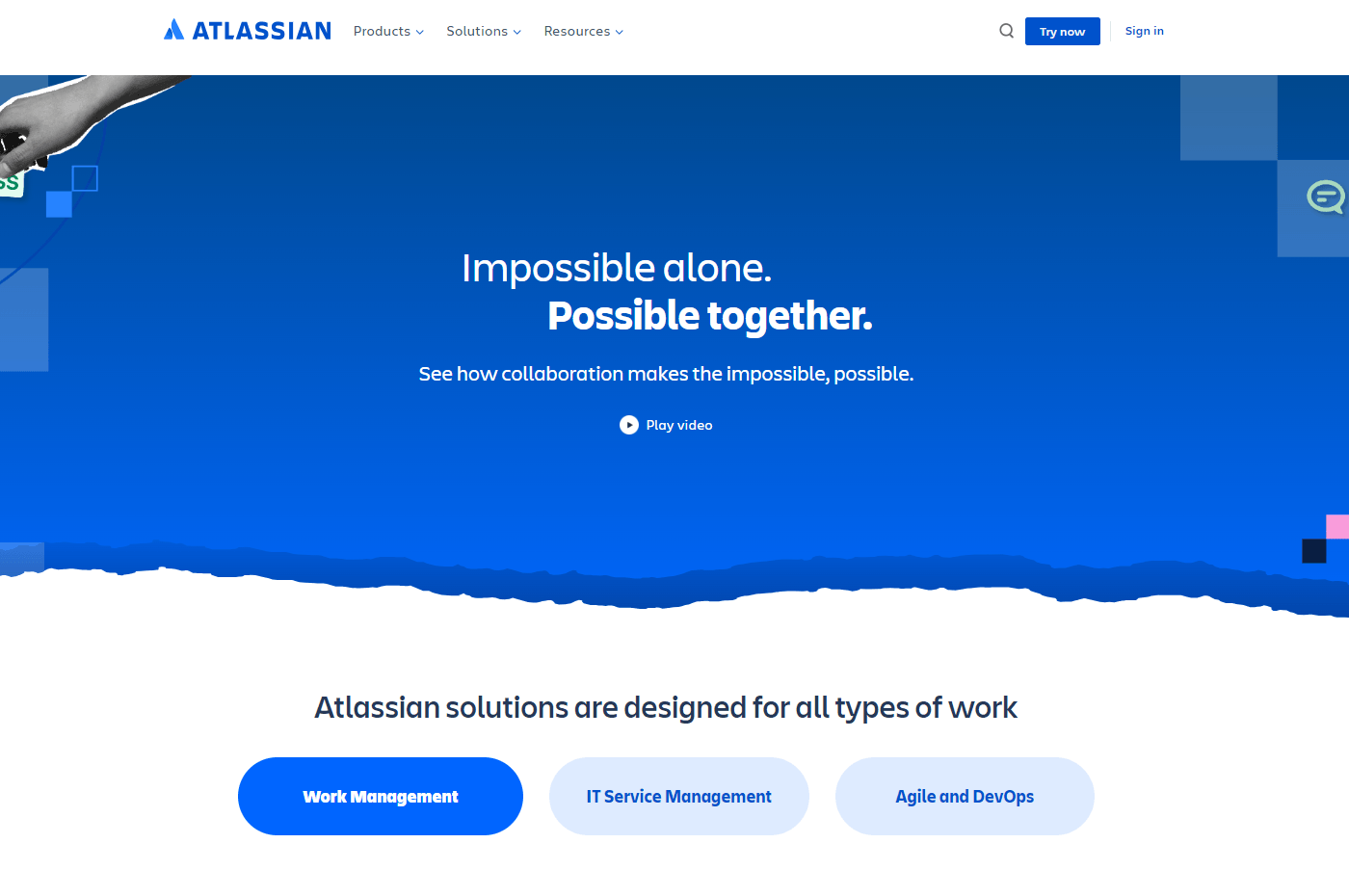
Atlassian is a software company that develops tools and products primarily focused on software development, project management, and collaboration within teams. It was founded in 2002 by Mike Cannon-Brookes and Scott Farquhar in Sydney, Australia. Their tools have become a significant part of modern software development and team collaboration practices across various industries.
Atlassian's notable products include:
Confluence: A tool for creating documentation, knowledge bases, and internal wikis.
Jira: A project management and issue tracking tool that helps teams manage tasks, bugs, and project progress.
Trello: A visual project management tool that employs boards, lists, and cards to help individuals and teams organize tasks and projects
Bitbucket: A platform for source code management, used to collaborate on code and manage your Git repositories.
Opsgenie: An incident management tool that aids in responding to and resolving incidents by notifying the right people and providing necessary information.
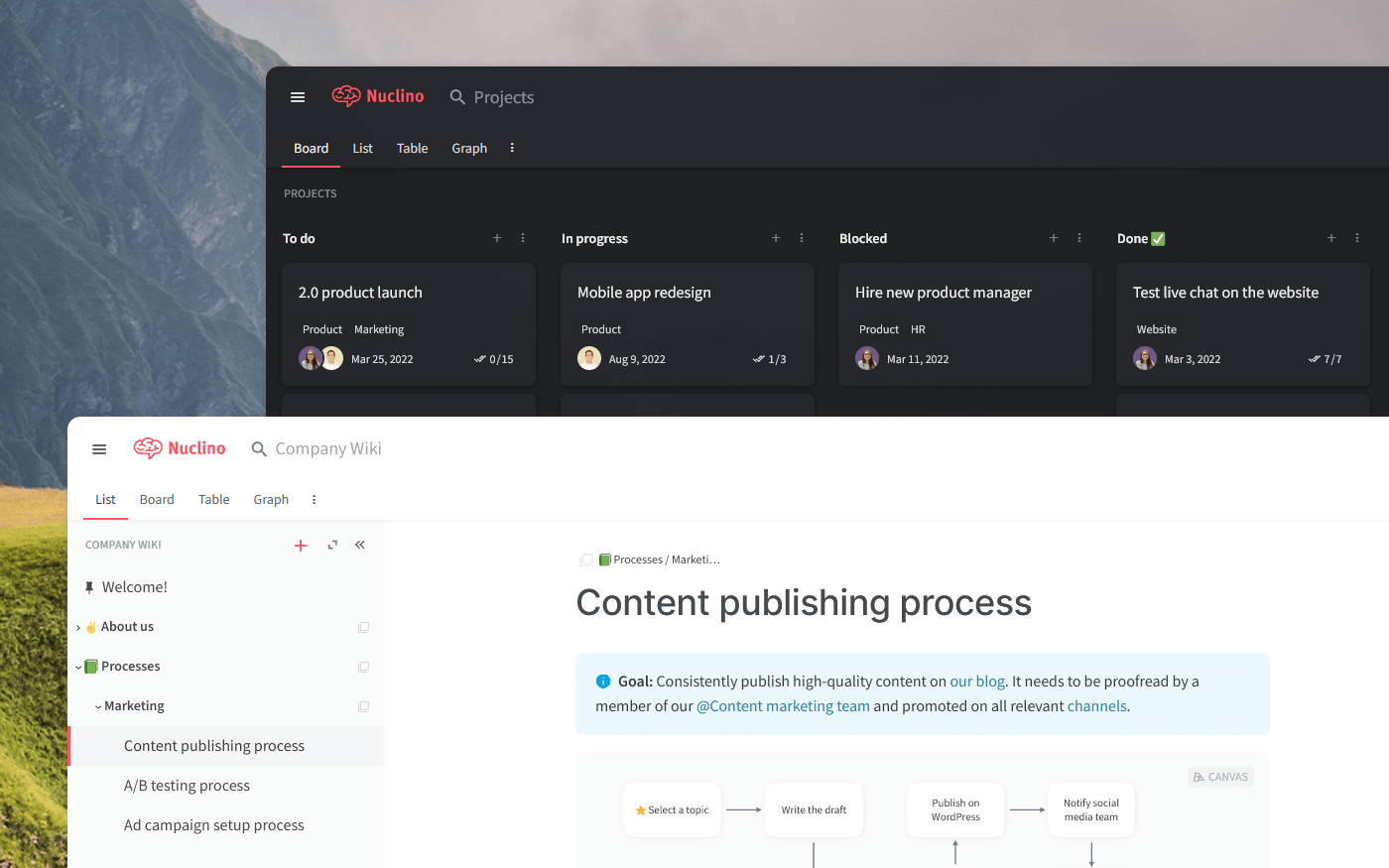
Why look for an Atlassian alternative?
From better user experience to performance optimization, there are many reasons why you may want to explore alternatives beyond the tried-and-true Atlassian products.
User experience: Over the years, Atlassian products have accumulated many features, becoming rather bloated and clunky.
Performance: Some users may find Atlassian tools too slow to be used productively.
Cost: Atlassian's products can come with a significant price tag, particularly as the team size or scope of projects grow. There are several budget-friendly Atlassian alternatives that offer comparable features at a lower cost.
Vendor lock-in concerns: Some users may be wary of relying heavily on a single vendor for their software needs.
Does that sound familiar? Then it may be time for you to switch to explore alternative options.
Best Atlassian alternatives and competitors
Atlassian's suite of tools encompasses various use cases, catering to project management, collaboration, documentation, and software development needs. Some alternatives, such as Nuclino or Basecamp, offer hybrid solutions and can replace multiple Atlassian products with one platform. On the other hand, other solutions, like GitBook and Asana, are fully optimized for one use case and don't try to do too many things at once.
Ultimately, the best Atlassian alternatives depend on your unique circumstances, as there are no one-size-fits-all solutions.
Best alternatives to Atlassian's Confluence
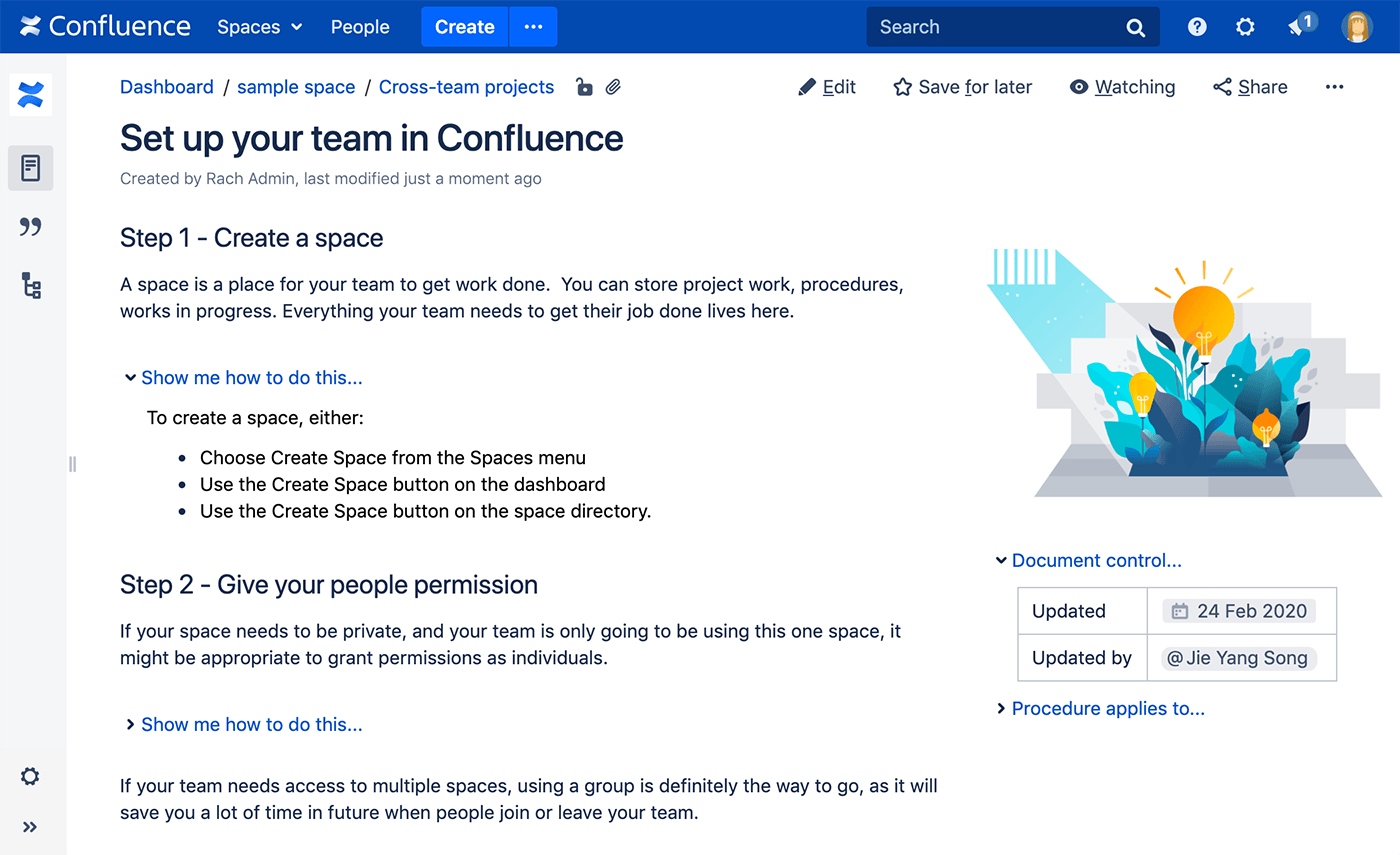
Confluence, Atlassian's collaboration and documentation platform, has established itself as a go-to tool for many teams seeking to centralize knowledge sharing and collaboration.
However, Confluence's comprehensive suite of features might be overkill for teams seeking a more straightforward solution. Others may prefer a more user-friendly platform that is easier for new users to adopt.
Some of the most notable alternatives to Atlassian's Confluence include:
Nuclino - a modern, lightweight, and fast tool that can replace Confluence, Trello, and Jira
BookStack - an open-source and self-hosted alternative
GitBook - a platform optimized for technical documentation (learn more: GitBook vs Confluence)
SharePoint - an intranet-style documentation tool developed by Microsoft (learn more: SharePoint vs Confluence)
Basecamp - a tried-and-true collaboration and project management tool, popular among remote teams
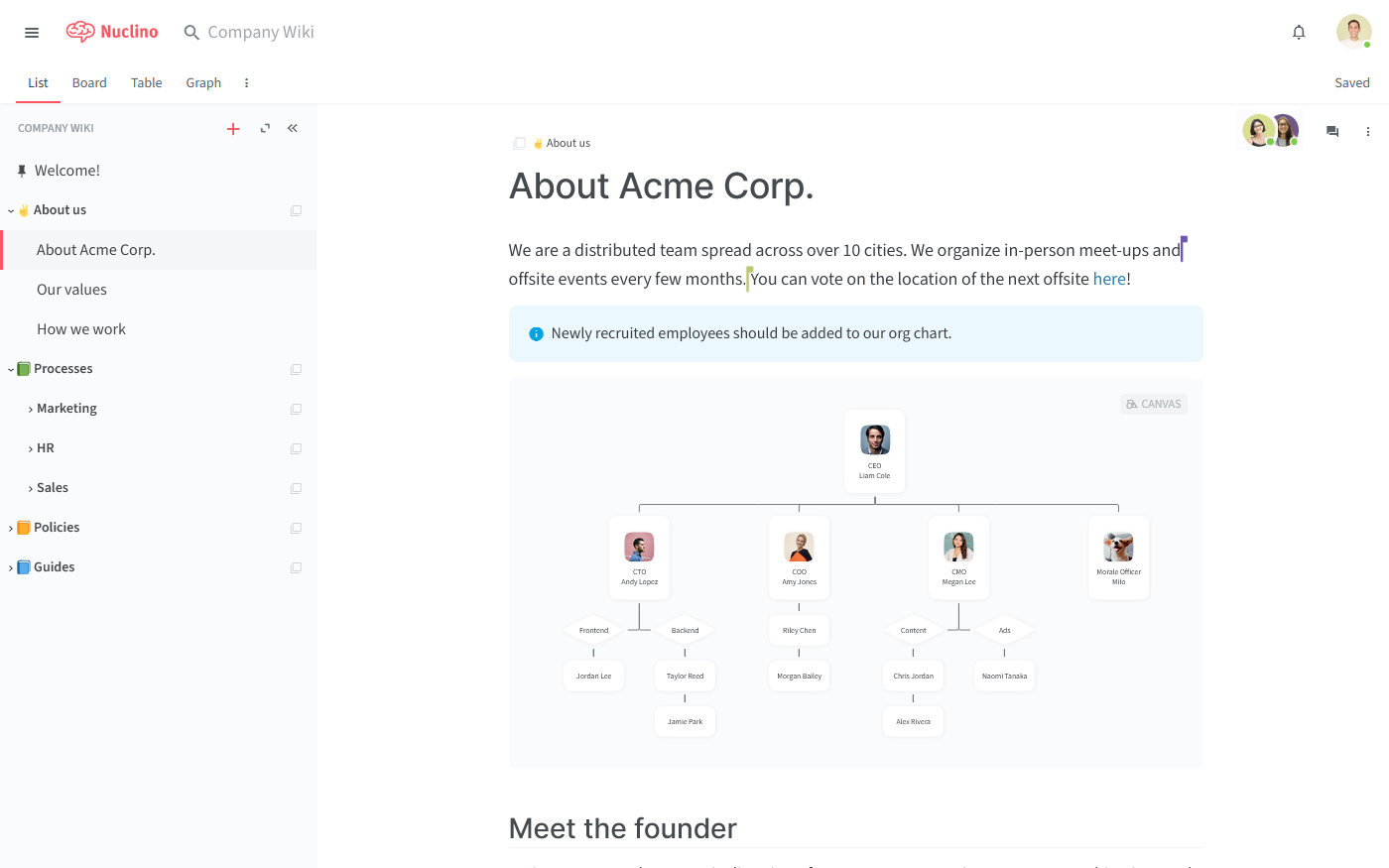
Looking for more tools similar to Confluence? Check out this full list of Confluence alternatives.
Best alternatives to Atlassian's Jira
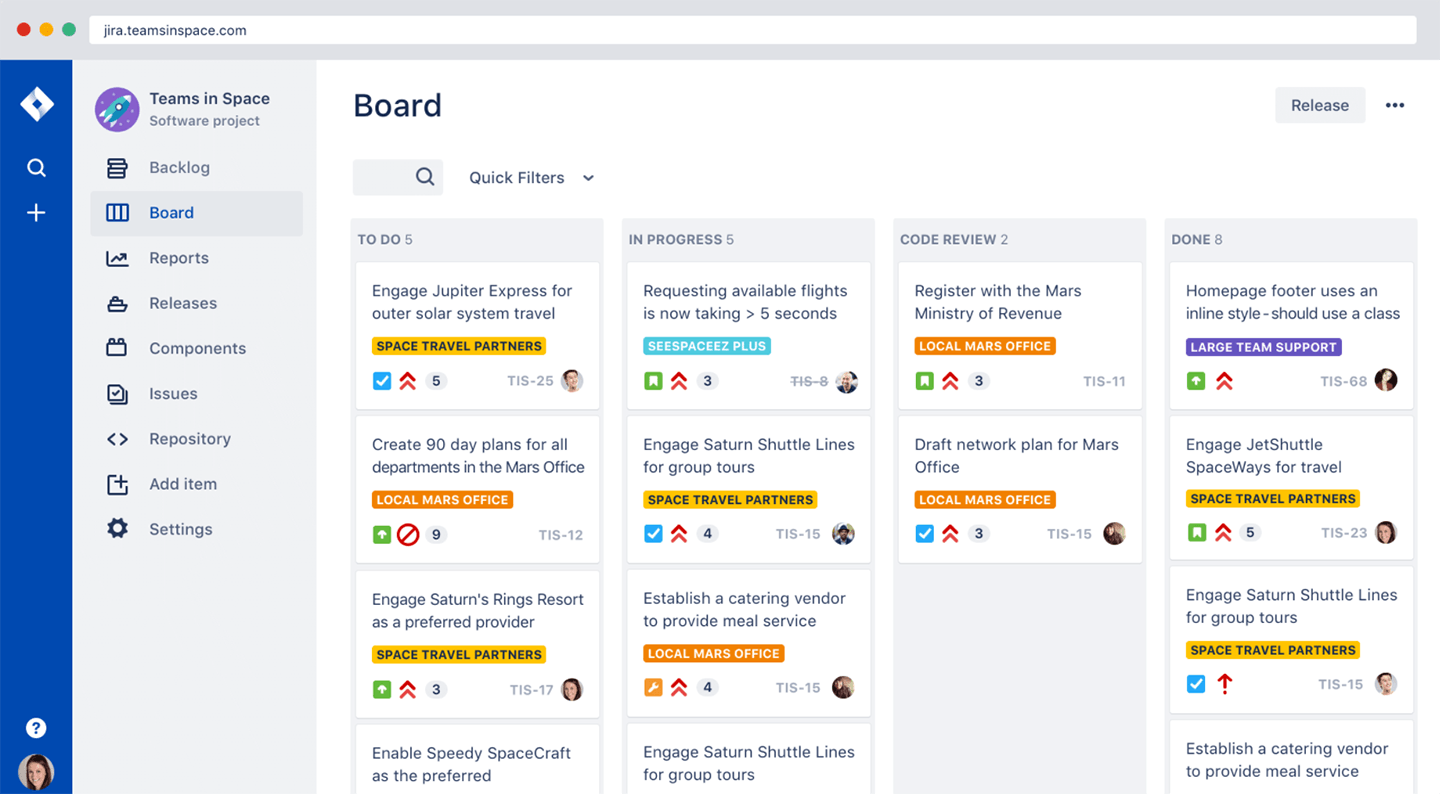
Jira, a cornerstone of Atlassian's product lineup, stands as a versatile tool for issue tracking, project management, and agile development. Its robust features allow teams to plan, track, and manage tasks, making it a popular choice for many organizations.
At the same time, smaller teams or those seeking simpler task management might find the tool's array of functionalities overwhelming. Other users may also value an intuitive, user-friendly interface above an extensive feature set.
Some of the most notable alternatives to Atlassian's Jira include:
Nuclino - a modern, lightweight, and fast tool that can replace Confluence, Trello, and Jira
Zoho Sprints - affordable sprint planning tool in the Zoho suite
Microsoft Project - powerful planning and scheduling capabilities, often favored by large enterprises
Taiga - free open-source project management platform focused on agile methodologies
Basecamp - a tried-and-true collaboration and project management tool, popular among remote teams (learn more: Basecamp vs Jira)
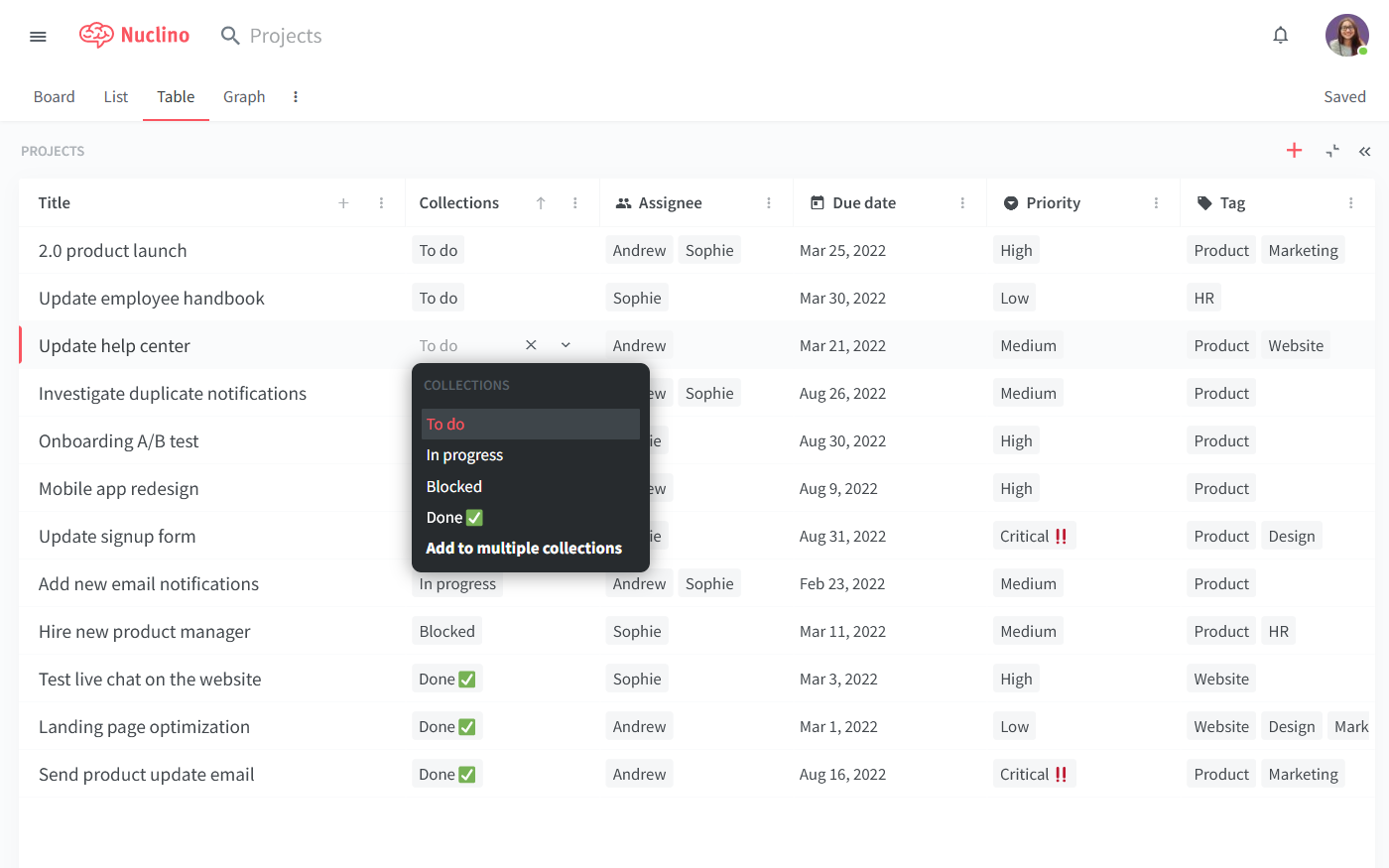
Looking for more tools similar to Jira? Check out this list of Jira alternatives.
Best alternatives to Atlassian's Trello
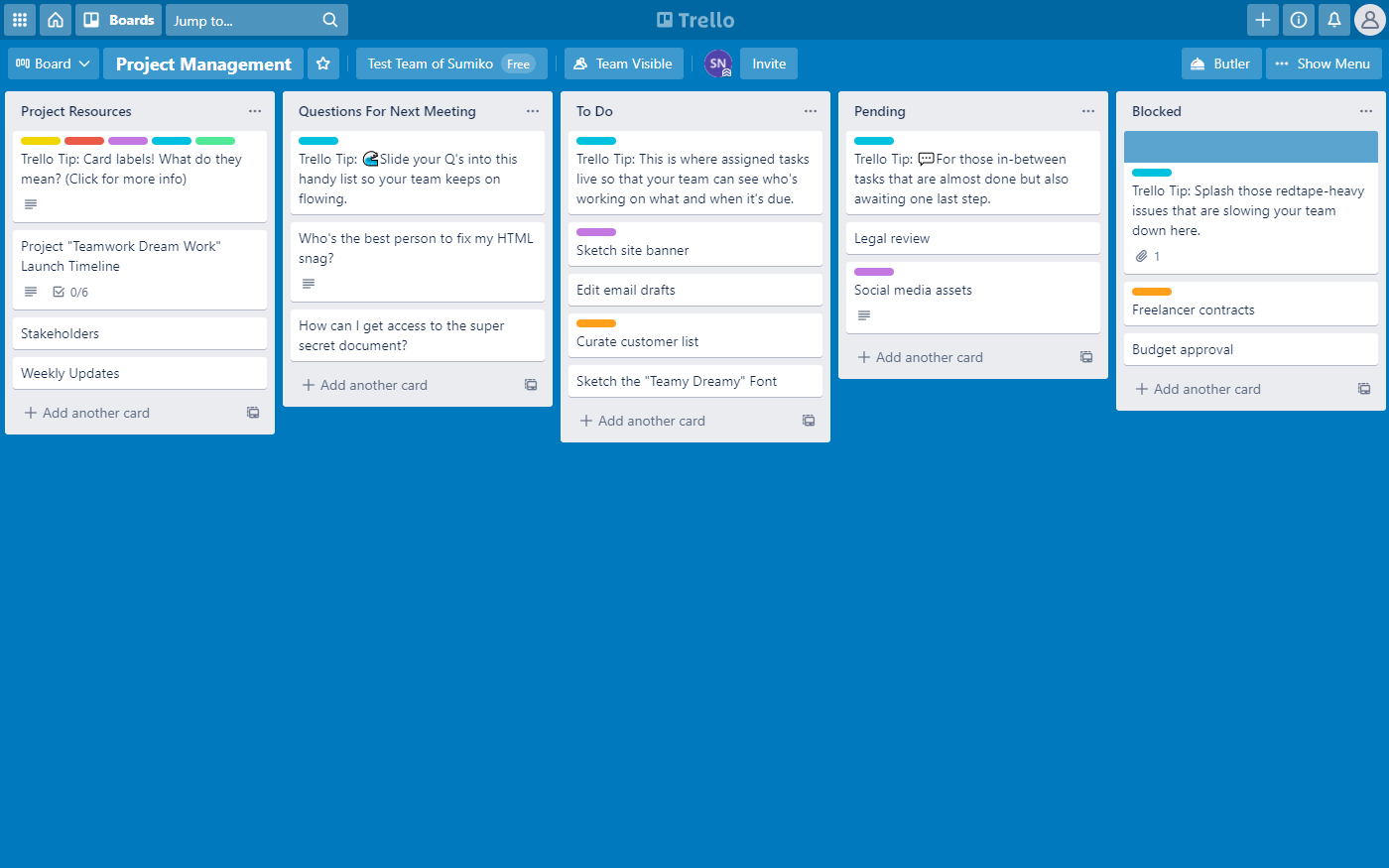
Trello is a widely used project management tool that helps teams and individuals organize tasks, projects, and workflows using a visual approach of boards, lists, and cards. It's known for its simplicity and user-friendly interface. Trello is one of the oldest Kanban board tools, but many users feel that it failed to keep up with competitors and modernize itself over the years.
Some of the most notable alternatives to Atlassian's Trello include:
Nuclino - a modern, lightweight, and fast tool that can replace Confluence, Trello, and Jira
Asana - a popular project management tool notable for its versatile task management features and customizable workflows (learn more: Asana vs Trello)
Todoist - a straightforward task management app that stands out for its clean design and cross-platform compatibility (learn more: Todoist vs Trello)
Taiga - open-source project management platform focused on agile methodologies
Basecamp - a tried-and-true collaboration and project management tool, popular among remote teams (learn more: Basecamp vs Trello)
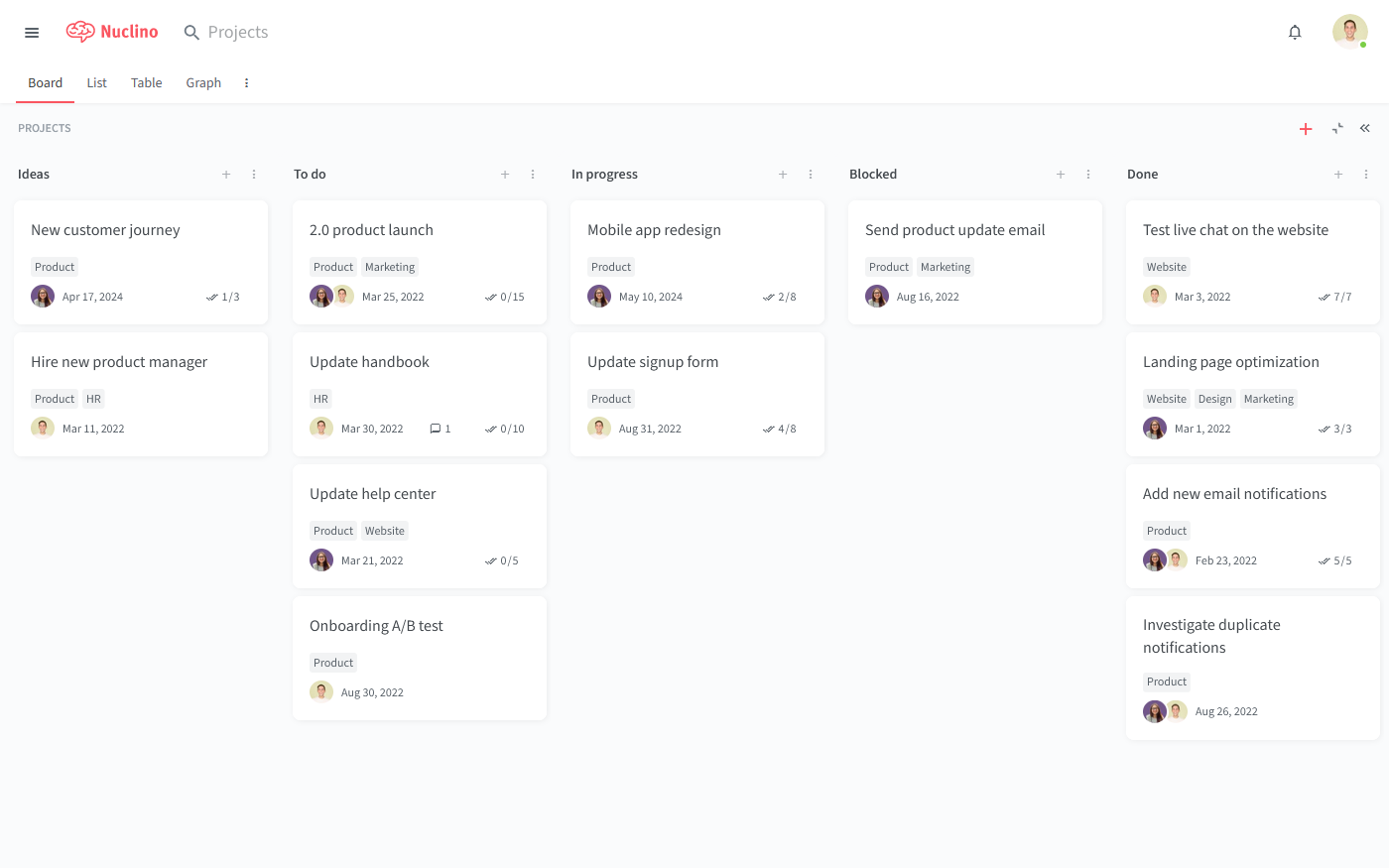
Looking for more tools similar to Trello? Check out this list of Trello alternatives.
Best alternatives to Atlassian's BitBucket
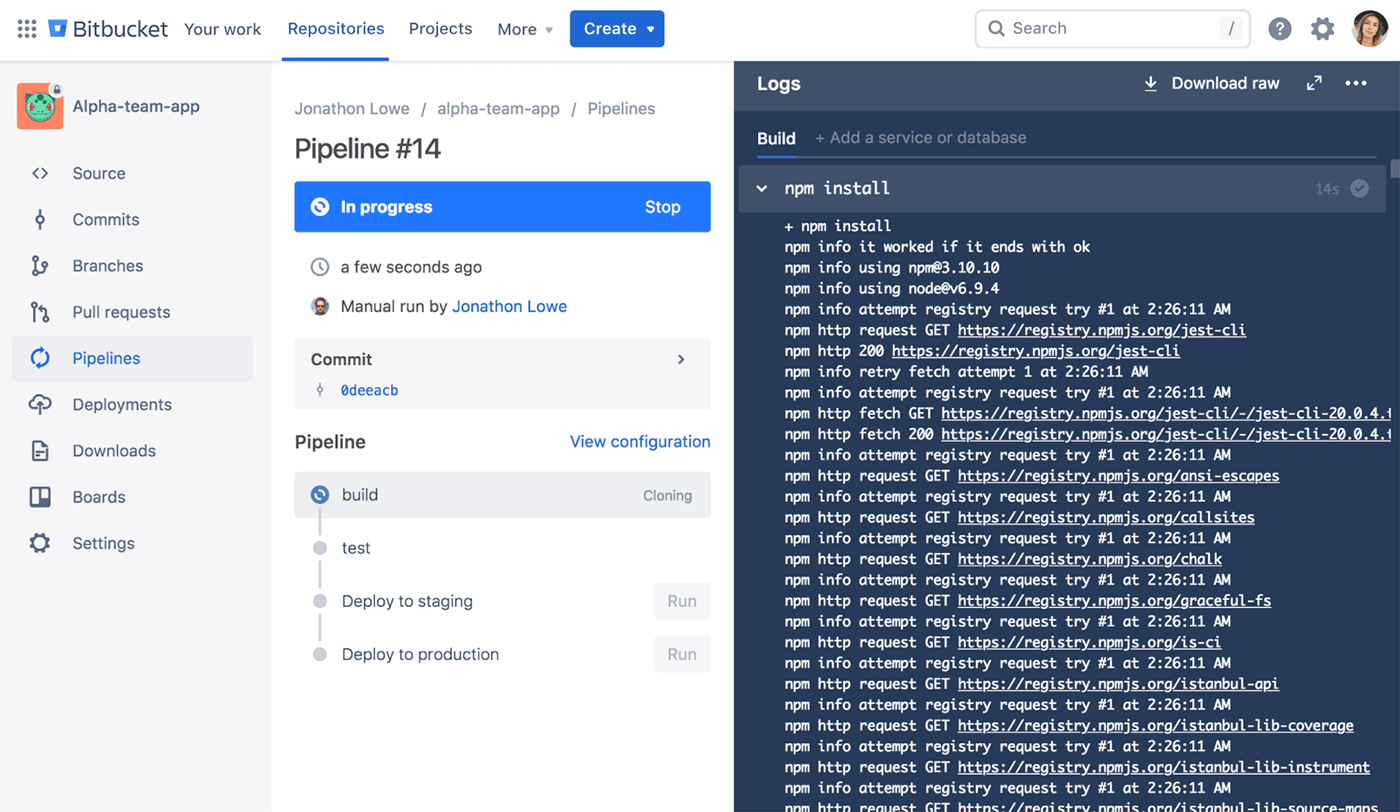
BitBucket is a web-based platform developed by Atlassian, aimed at facilitating version control and collaboration on software projects. It's commonly used for managing Git and Mercurial repositories, allowing multiple developers to work on the same codebase while keeping track of changes and ensuring code quality through features like pull requests and code reviews.
Some of the most notable alternatives to Atlassian's BitBucket include:
GitHub - a widely used platform for hosting and collaborating on code repositories, known for its seamless integration with popular developer tools and a vast community
GitLab - an end-to-end DevOps platform that includes a robust repository management system along with built-in CI/CD pipelines
Azure DevOps - Microsoft's integrated set of tools covering the entire software development lifecycle, featuring seamless integration with other Microsoft products
Gitea - a lightweight and open-source alternative, Gitea focuses on providing a streamlined code hosting solution with a minimalistic approach
SourceForge - an older platform offering version control, though it has somewhat diminished in popularity compared to newer alternatives
Best alternatives to Atlassian's Opsgenie
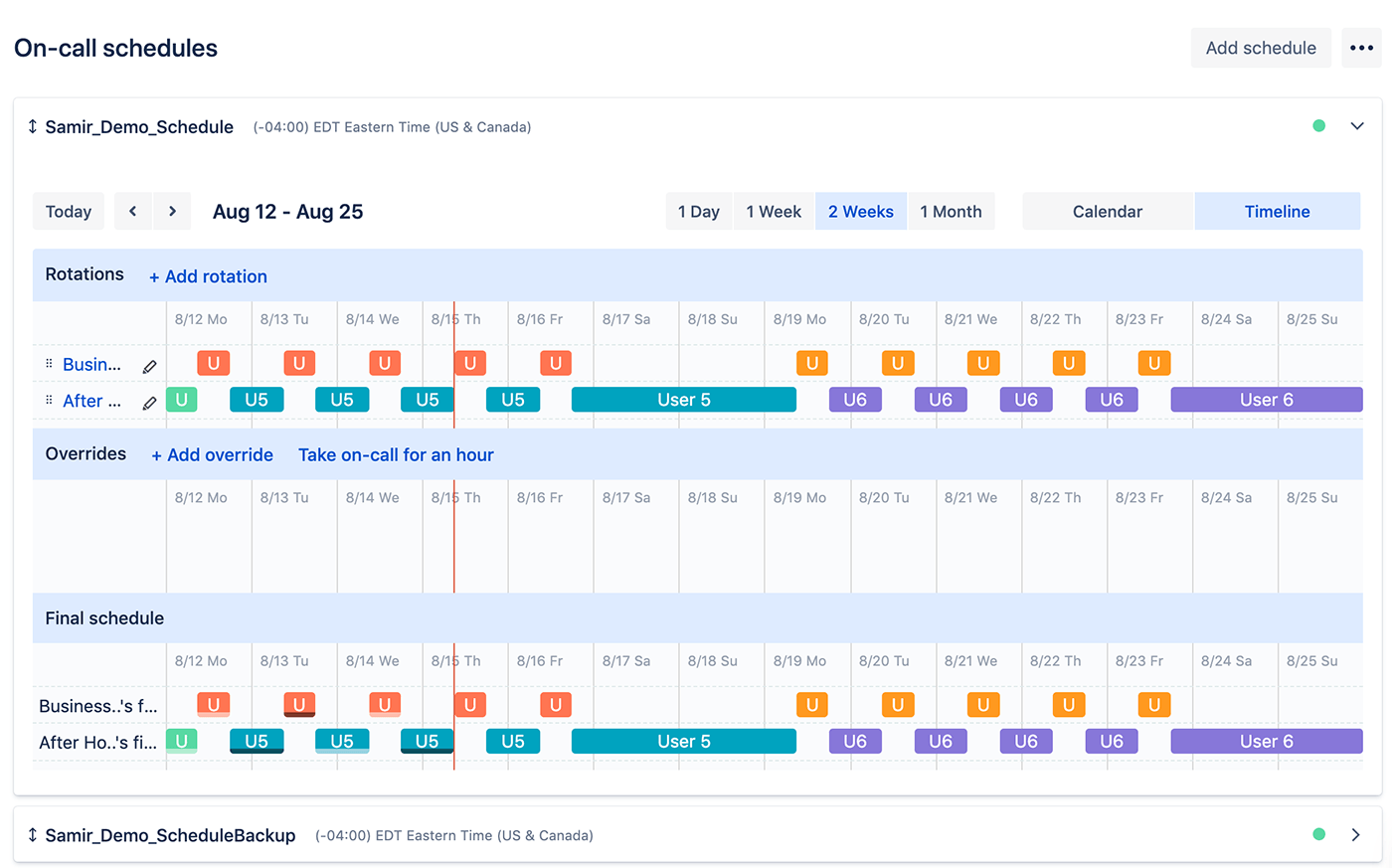
Opsgenie was an incident management platform developed by Atlassian. It helped teams respond to incidents and downtime more effectively by providing alerting mechanisms, on-call schedules, and collaborative tools.
In 2025, Atlassian announced that Opsgenie will no longer be available for purchase, effective June 4th, 2025. Opsgenie customers will be able to continue to use the product, without interruption, until April 5th, 2027 when Opsgenie will be shut down.
For those looking to migrate their work, some of the most notable alternatives to Atlassian's Opsgenie include:
Alertops - a straightforward incident management tool that provides a focused approach to handling alerts and incidents efficiently
Splunk On-Call - a practical incident response platform that emphasizes integrating incident data with your existing Splunk ecosystem.
Better Uptime - a reliable monitoring tool that emphasizes simplicity and ease of use, suitable for small to medium-sized teams
Cabot - a self-hosted monitoring and alerting system that offers customizable alerting rules and a basic, open-source alternative to commercial options
PagerDuty - a mature incident management tool known for its robust integrations and flexibility in managing on-call schedules and alerts
Ready to get started?
